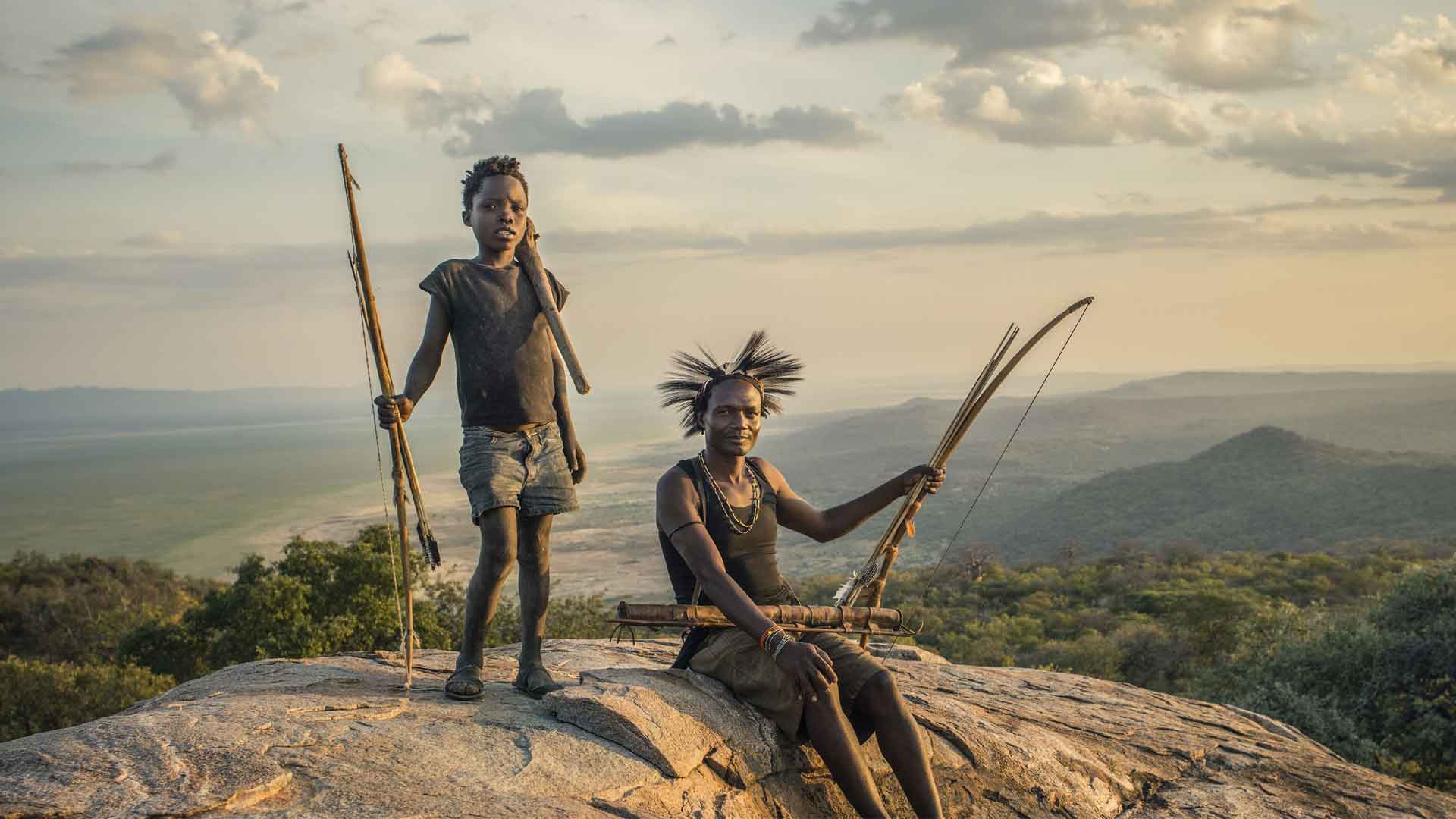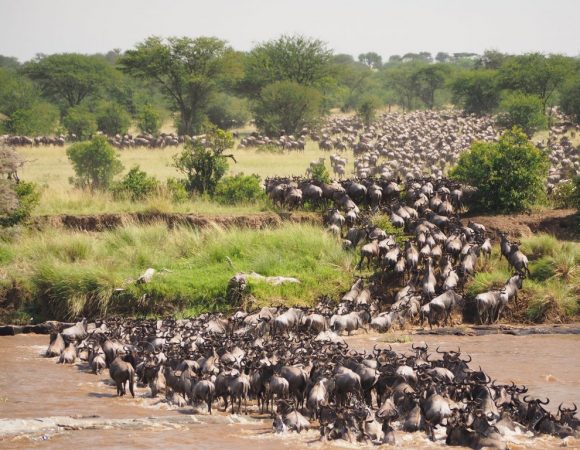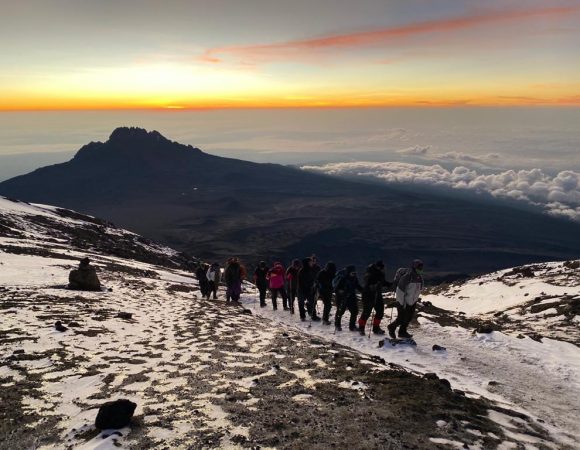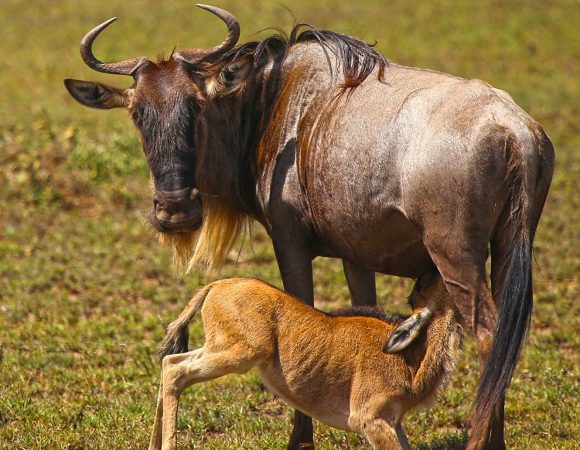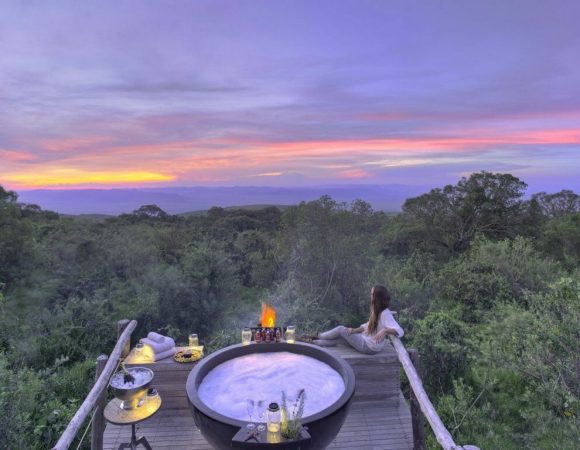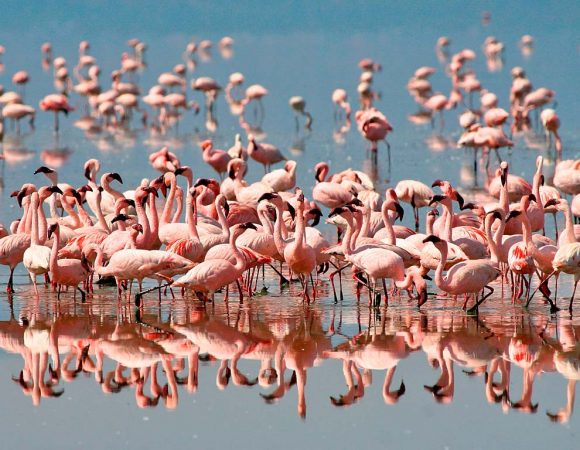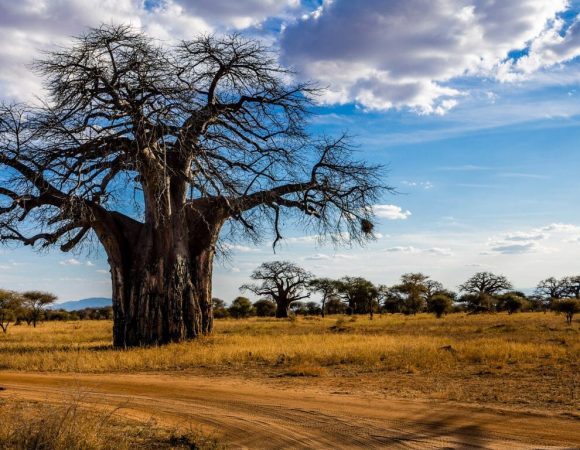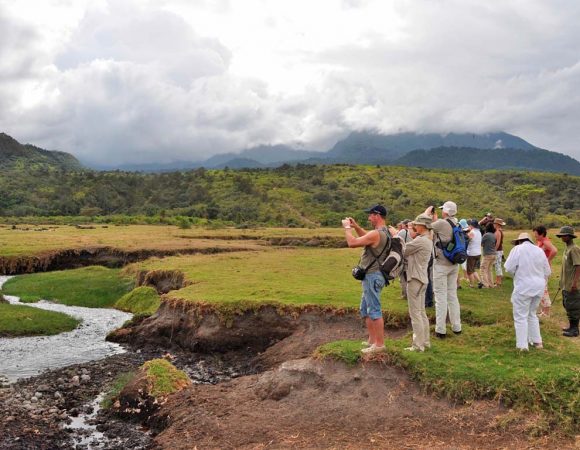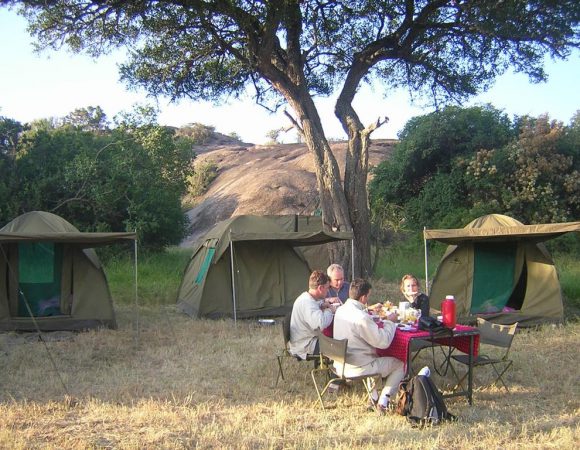- Home
- The Hadzabe Tribe
The Hadzabe Tribe
The Hadzabe people of Northern Tanzania are probably the last of the first humans that are hunters and gatherers. The Hadza are occupationally nomads. Ecological Wilderness Adventure can take you on an amazing adventure with the Hadzas on our hadzabe bushmen safari. The Hadza bush tour is just out of this world, like something out of a scene from the popular hollywood hit “Gods Must Be Crazy”. Since they share alot in common with the bushmen tribe that resides in the Kalahari Desert in South Africa all your trip is what your can imagine and even more.
A safari with the bushmen of Tanzania is a cultural immersion tour that requires alot of observation and participation and interaction. Your typical day begins by participating in a normal day to the bushmen whereby you will join the bushmen as they hunt using traditional Bow and arrows, or join the women as they search and gather fruits and wild berries. Everything you see here is the real life of a bushman on his daily struggle to survive, provide for the family and live to see another day.
About the Hadzabe People of Tanzania
The Hadza people porpularly known as the Hadzabe, are an ethnic tribe of Northern Tanzania consisting of an estimated population of just under 1000 people that live in Lake Eyasi, central Rift Valley and in the neighboring Serengeti Plateau. For thousands of years, the Hadza’s main economic activity is hunting and gathering. The Hadza are not closely related to any other people. While traditionally considered an East African branch of the Khoisan peoples, primarily because their language has clicks, modern genetic research suggests that they may be more closely related to the Pygmies. The Hadza language appears to be an isolate, unrelated to any other.
The hadzabe cook in open fires
There are four traditional areas of Hadza dry-season habitation: West of the southern end of Lake Eyasi, between Lake Eyasi and the Yaeda Valley swamp to the east, east of the Yaeda Valley in the Mbulu Highlands, and north of the valley around the town of Mang’ola. During the wet season the Hadza camp outside and between these areas, and readily travel between them during the dry season as well. Access to and from the western area is by crossing the southern end of the lake, which is the first part to dry up, or by following the escarpment of the Serengeti Plateau around the northern shore. The Yaeda Valley is easily crossed, and the areas on either side abut the hills south of Mang’ola.
The hadzabe live in huts
The Hadza have traditionally foraged outside these areas, in the Yaeda Valley, on the slopes of Mount Oldeani north of Mang’ola, and up onto the Serengeti Plains. Such foraging is done for hunting, berry collecting, and for honey. Although hunting is illegal in the Serengeti, the Tanzanian authorities recognise that the Hadza are a special case and do not enforce the regulations with them, just as the Hadza are the only people in Tanzania not taxed locally or by the national government.
Hadza men usually forage individually, and during the course of day usually feed themselves while foraging, and also bring home some honey, fruit, or wild game when available. Women forage in larger parties, and usually bring home berries, baobab fruit, and tubers, depending on availability. Men and women also forage co-operatively for honey and fruit, and at least one adult male will usually accompany a group of foraging women. During the wet season, the diet is composed mostly of honey, some fruit,fdr tubers, and occasional meat.
The contribution of meat to the diet increases in the dry season, when game become concentrated around sources of water. During this time, men often hunt in pairs, and spend entire nights lying in wait by waterholes, hoping to shoot animals that approach for a night-time drink, with bows and arrows treated with poison. The poison is made of the branches of the shrub Adenium coetaneum.
The hadzabe eating after the night hunt
The Hadza are highly skilled, selective, and opportunistic foragers, and adjust their diet according to season and circumstance. Depending on local availability, some groups might rely more heavily on tubers, others on berries, others on meat. This variability is the result of their opportunism and adjustment to prevailing conditions.
Traditionally, the Hadza do not make use of hunting dogs, although this custom has been recently borrowed from neighboring tribes to some degree. Most men (80%+) do not use dogs when foraging.


